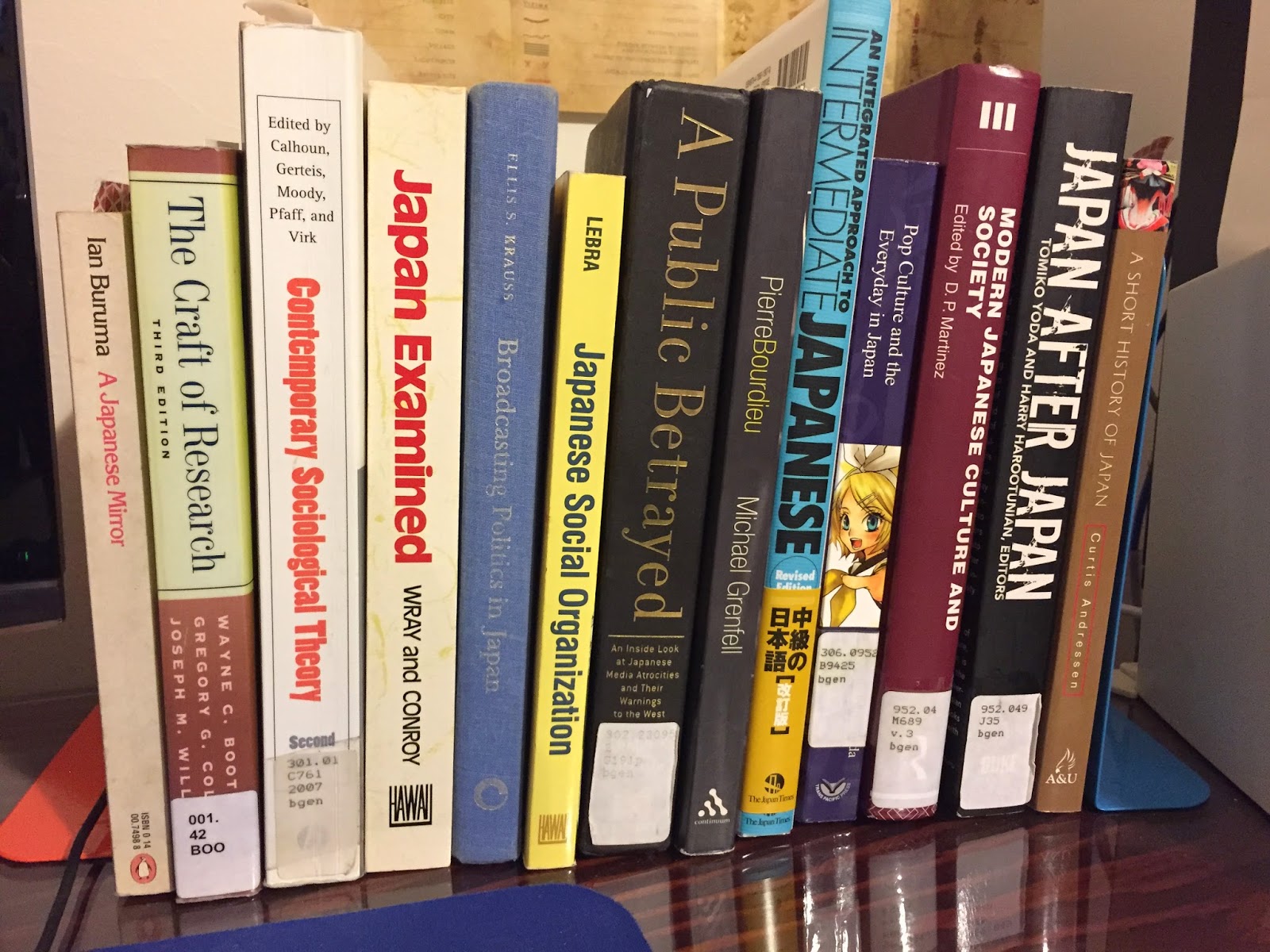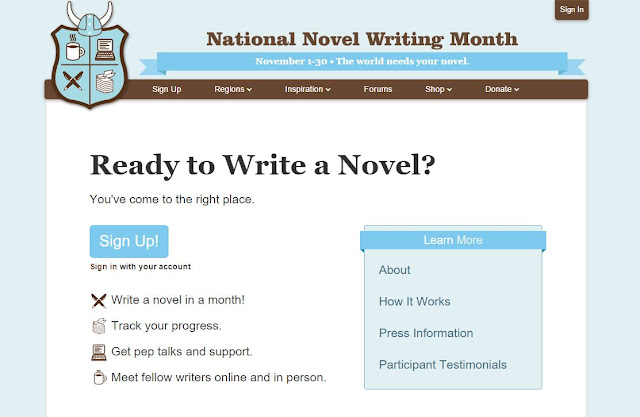HOW FAR I'VE COME
I have started studying Japanese Honours at La Trobe University (yay!). I had an experience in class the other day that I really want to write down - not that I think I'll ever forget it - but on the off chance I do...
I arrive barely on time. Ichikawa-sensei arrives a few minutes later. She is apologising for being late and explaining in rapid Japanese that Elise-sensei will be thirty minutes late, as today is the day she is bringing Isogai-san and Maenaka-san to class. They are professors from Akita International University in Japan, and they will be joining our class to hear about our theses. It is Week 2 and I have barely decided what my topic will be in English - let alone Japanese. Further, Ichikawa-sensei explains, we are going to do a quick practice round to rehearse what we will say to these important representatives. "Amelia, would you like to go first?" Only it is not really a question.
I am pretty exhausted - I worked an eight hour shift starting at 5am before coming to University for the day. I know what I want to say, but my brain moves with the pace of cold honey. I 'umm' and 'errr' and curse myself for being too lazy to do more work on translating my thesis topic the night before. With much guidance from Ichikawa, I manage to get a semblance of what I want to say figured out. The current version of my research topic can most concisely be expressed in the question: "What does the comparative cultural worth of Murakami Takashi and Murakami Haruki tell us about the current state of Japanese national identity?" This topic choice is considered quite abstract, even amongst my fellow students. I know a few key terms, such as 'national identity', but expressing the idea of comparing cultural worth? I am still trying to figure out how I am going to do that in English.
Once my harrowing first attempt to explain is finally over, and Ichikawa moves to question my classmate, I whip out my smartphone and begin frantically trying to piece together all the new grammar and vocabulary Ichikawa just flooded me with, simultaneously trying to search for more terms I might need.
All too soon the door opens and it's Elise! Bringing with her Isogai and Maenaka. Time is up and I have to speak first. The professors' formal entrance and introduction would be enough to put anyone in mind of job interviews and work reviews. I did my best to act naturally and not twitch or fidget. Elise asks me to explain my topic and I begin.
Luckily I have had time to translate most of the more difficult concepts using the help I was given earlier. But about two-thirds through my hastily prepared notes run out and I am truly on my own. I do not know how, but at that point my brain must have started pumping some kind of emergency adrenaline. I carried on explaining myself, only slipping up once or twice, but on the whole feeling as though I had adequately expressed myself.
But it wasn't over yet. After thanking me for my overview Elise invited the professors to ask me questions. This I had not calculated for. But what could I do? I smiled as nicely as I could, given that what I really wanted to do was run screaming from the building. Maenaka-sensei began speaking - I was so worried that I would not understand that I almost forgot to listen - and a beautiful thing happened.
I could mostly understand.
I am sure this is not entirely thanks to my skill - almost certainly Maenaka-sensei was kindly speaking extra clearly for my benefit, but still, it felt amazing! She inquired about my research methods - and although I had to rely on Elise for a few words I did not know in Japanese, I felt we communicated effectively. I was even more worried about Isogai-sensei's questions. It is a flaw of my Japanese that I have a lot of trouble understanding male Japanese compared to female (a problem I attribute to most of my Japanese friends and teachers being female, an interesting problem for another day). But again, everything was okay! Isogai-sense expressed concerns about my research methods, and pointed out some gaps between my studies and reality that I would be wise to point out. It was excellent advice, and a perspective I had not yet considered. I was so abuzz that I barely heard the contents of my classmates explanations.
Once we had all completed our explanations, Elise offered us an opportunity to ask the professors questions. We had not expected this, and so were silent for a few seconds. I think Elise mistook our silence for lack of inspiration - I for one had the opposite problem - I did not know where to start! I settled on 'what are your specializations (research wise)?' Their responses were fascinating.
Throughout the whole class I was too nervous and concentrated on listening to reflect, but once we left I started to realise how far I had come. As a language learner it is easy to discount your progress, as you are always concentrated on moving forward and learning new things - which has the unfortunate side-effect of constantly impressing upon you, just how much you don't know. An experience like this was timely - to have my confidence given this little boost when about to embark on the mighty quest which is Honours. I hope it lasts.
I arrive barely on time. Ichikawa-sensei arrives a few minutes later. She is apologising for being late and explaining in rapid Japanese that Elise-sensei will be thirty minutes late, as today is the day she is bringing Isogai-san and Maenaka-san to class. They are professors from Akita International University in Japan, and they will be joining our class to hear about our theses. It is Week 2 and I have barely decided what my topic will be in English - let alone Japanese. Further, Ichikawa-sensei explains, we are going to do a quick practice round to rehearse what we will say to these important representatives. "Amelia, would you like to go first?" Only it is not really a question.
I am pretty exhausted - I worked an eight hour shift starting at 5am before coming to University for the day. I know what I want to say, but my brain moves with the pace of cold honey. I 'umm' and 'errr' and curse myself for being too lazy to do more work on translating my thesis topic the night before. With much guidance from Ichikawa, I manage to get a semblance of what I want to say figured out. The current version of my research topic can most concisely be expressed in the question: "What does the comparative cultural worth of Murakami Takashi and Murakami Haruki tell us about the current state of Japanese national identity?" This topic choice is considered quite abstract, even amongst my fellow students. I know a few key terms, such as 'national identity', but expressing the idea of comparing cultural worth? I am still trying to figure out how I am going to do that in English.
Once my harrowing first attempt to explain is finally over, and Ichikawa moves to question my classmate, I whip out my smartphone and begin frantically trying to piece together all the new grammar and vocabulary Ichikawa just flooded me with, simultaneously trying to search for more terms I might need.
All too soon the door opens and it's Elise! Bringing with her Isogai and Maenaka. Time is up and I have to speak first. The professors' formal entrance and introduction would be enough to put anyone in mind of job interviews and work reviews. I did my best to act naturally and not twitch or fidget. Elise asks me to explain my topic and I begin.
Luckily I have had time to translate most of the more difficult concepts using the help I was given earlier. But about two-thirds through my hastily prepared notes run out and I am truly on my own. I do not know how, but at that point my brain must have started pumping some kind of emergency adrenaline. I carried on explaining myself, only slipping up once or twice, but on the whole feeling as though I had adequately expressed myself.
But it wasn't over yet. After thanking me for my overview Elise invited the professors to ask me questions. This I had not calculated for. But what could I do? I smiled as nicely as I could, given that what I really wanted to do was run screaming from the building. Maenaka-sensei began speaking - I was so worried that I would not understand that I almost forgot to listen - and a beautiful thing happened.
I could mostly understand.
I am sure this is not entirely thanks to my skill - almost certainly Maenaka-sensei was kindly speaking extra clearly for my benefit, but still, it felt amazing! She inquired about my research methods - and although I had to rely on Elise for a few words I did not know in Japanese, I felt we communicated effectively. I was even more worried about Isogai-sensei's questions. It is a flaw of my Japanese that I have a lot of trouble understanding male Japanese compared to female (a problem I attribute to most of my Japanese friends and teachers being female, an interesting problem for another day). But again, everything was okay! Isogai-sense expressed concerns about my research methods, and pointed out some gaps between my studies and reality that I would be wise to point out. It was excellent advice, and a perspective I had not yet considered. I was so abuzz that I barely heard the contents of my classmates explanations.
Once we had all completed our explanations, Elise offered us an opportunity to ask the professors questions. We had not expected this, and so were silent for a few seconds. I think Elise mistook our silence for lack of inspiration - I for one had the opposite problem - I did not know where to start! I settled on 'what are your specializations (research wise)?' Their responses were fascinating.
Throughout the whole class I was too nervous and concentrated on listening to reflect, but once we left I started to realise how far I had come. As a language learner it is easy to discount your progress, as you are always concentrated on moving forward and learning new things - which has the unfortunate side-effect of constantly impressing upon you, just how much you don't know. An experience like this was timely - to have my confidence given this little boost when about to embark on the mighty quest which is Honours. I hope it lasts.



Comments
Post a Comment